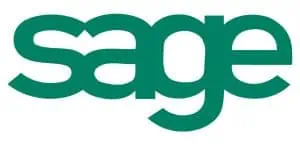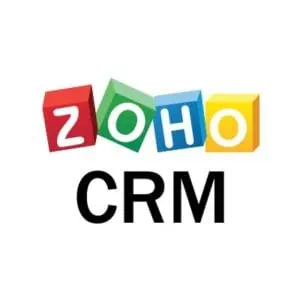ACT CRM vs Zoho CRM Review
Is picking ACT? such sage advice?
This isn’t a typical CRM comparison in that if you find yourself comparison ACT CRM vs Zoho CRM, you’re probably deciding whether to keep ACT or move to Zoho CRM. If we were to make an analogy, this would be like pitting a heavyweight against a lightweight in the boxing arena – but, as you well know, it’s not always a throwaway match. Heavyweights, while powerful and visible, can be a little slow in the ring; and, lightweights, while not quite as potent at times, can be extremely agile and nimble.
If the comparison isn’t immediately apparent, the older ACT is the bulkier heavyweight, while cloud-based Zoho CRM is the lighter fighter. So, who wins this particular mismatched battle? Read on for the skinny on Zoho, as well as a ACT CRM review…
Round One: The Price
This battle won’t actually be quite as mismatched as I’ve led you to believe. Zoho CRM Professional Edition (PE) is very similar in price to ACT! Expert:
- It costs $420 to board a single user on Zoho CRM PE for one year.
- It costs $540 to board a single user on Act! CRM Expert for one year.
Not too much of a difference there at all, so this match is a tie!
The real differences are in the features of each product, though.
Round Two: Tracking the Sales
At the onset, both Zoho and ACT appear evenly matched, both providing a typical number of modules like Leads, Contacts, Accounts, Opportunities, Sales forecasts, and the ability to import data from old CRMs. The real difference is in what Zoho provides in addition, though, that Sage does not:
- Competitor tracking
- Sales quotas
- Feeds
The first two are self-explanatory, but, feeds is a feature that turns your CRM into a social network of sorts, allowing members to track or follow certain activities or records in the CRM, adding comments as they see fit. This style of communication is advantageous because it’s in a format most modern tech-minded (or generally younger) workers are used to, and, comments can be traced back to specific events or records easily, making it a much easier communication solution than starting an email thread (or multiple threads).
That said, the winner of this round is Zoho.
Round Three: Integrating the Social Aspect
Having an online presence – especially in social media – is one of the most important things a business can do nowadays. Sage clearly recognizes this and equips ACT! Pro with all sorts of social media integration options: Facebook and LinkedIn, built-in tabs for both of those networks, and ways to monitor mentions of your company on those social media platforms. Zoho CRM PE, which only sports integrations to Twitter and Facebook, seems a bit behind in this aspect. For that reason, Sage wins the social media integration round.
Round Four: Automating your Marketing
Wouldn’t it be nice if you could get your CRM to help you with your marketing? Indeed, you can. Many CRMs are equipped with marketing automation tools – but, as we’re finding out, not all of these tools are distributed equally. Zoho CRM comes with a variety of standard marketing automation tools: Available email templates, mass emailing ability, an email campaign manager (Zoho Campaigns), and, the ability to transfer web leads directly into your Zoho CRM. Sage, on the other hand, provides mass emailing and campaign tracking ability – and web-to-lead conversion, but at an increased price. Overall, Zoho wins this round, as it simply provides the user more marketing options, and at an ostensibly reduced price.
ACT CRM vs Zoho CRM BONUS ROUND: Inventory Management
For a bonus round (even a self-described one), this one is certainly no contest. In short, if you need a CRM with inventory management capability and you’ve narrowed your search down to ACT Expert and Zoho CRM PE, you should choose Zoho CRM PE.
Zoho CRM PE allows users to track and modify Sales Quotes, Sales Orders, Products, Price Books, Invoices, Vendors, and Purchase Orders – and, it comes with integrated order procurement and fulfillment capabilities.
ACT! Expert packs none of these features.
And, the winner of ACT CRM vs Zoho CRM is…
For the rounds we took into account, the clear winner seems to be Zoho CRM Professional Edition over ACT! Expert. However, it’s worth noting that you may want to do additional homework before making a final decision on a CRM. Paired with its lightweight quality, Zoho is unequivocally the cheaper option, but, that fact and this analysis don’t account for factors like customer support, Zoho consulting, or UI, which are quite subjective. In any case, we hope this has provided you the information you need to ultimately choose the CRM that best fits your unique business.
One more thing about ACT vs Zoho
A final thing to consider when comparing ACT and Zoho is that aside from Zoho’s dedicated apps for managing inventory, projects, and your books (Zoho Books, to be exact), Zoho offers even more functionality at only a fraction of the price of a single app, in some cases. This offering is called Zoho One, and it’s a collection of over 40 different Zoho applications, available for only $45/user/mo, or $37/user/mo when paid annually*. The only requirement to use Zoho One is that all of your W-2 employees use the suite. Obviously, this isn’t a good choice for all companies – but, it tends to help very many. *Pricing updated June 2021
Still not sure which direction to go in? We’ve helped many companies in your situation before. Contact us to get started, or keep reading for more helpful information.













